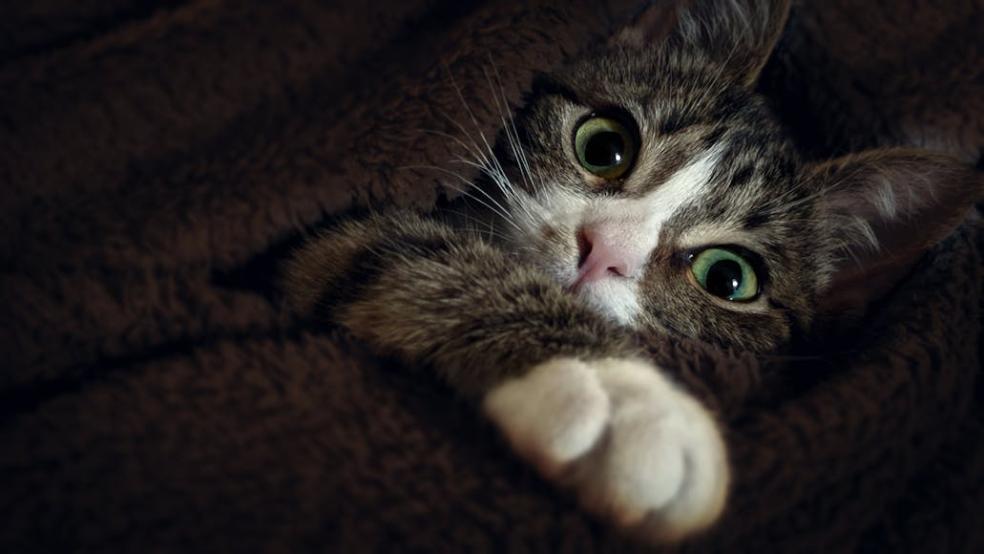
The Hidden Meanings Behind Your Cat’s Different Vocalisations
Do you have a chatty cat or a talkative tabby? For cat owners, you may find your feline will do more than just purr or meow when it wants your attention, but have you ever understood fully what your cat is trying to say?
While they may not speak our language, cats are surprisingly vocal creatures, and every sound they make has meaning behind it. From the classic meow to the soothing purr or the occasional dramatic yowl, your cat is constantly communicating with you. If you are an experienced cat owner, you may already know the differences between each sound, but for those who are new to being a pet parent, you may have no idea. Don’t worry, we’re here to help…
Below we’ll help you understand these different vocalisations so you can respond to your cat’s needs better, and even spot early signs of illness or stress.
The Classic ‘Meow’ – Not Just One Sound
The most recognisable sound your cat will make is a meow, but you may be surprised to learn that adult cats rarely meow at each other and usually do so to attract human attention. This is one of the key ways your cat will communicate with you, so if you hear a meow, you know it’s for your benefit.
They may use it to greet you when you walk in the door, in the morning when in bed, during playtime, or when they want feeding. Generally, it’s a good sign, but depending on the sound of the meow, it could indicate something different. If they are feeling frustrated, anxious, or particularly hungry, you may hear higher or lower tones. It’s these different sounds that you’ll need to pay attention to, and over time, you’ll get used to what each means.
- A short, high-pitched meow might be your cat’s way of saying hello, while a louder, more insistent meow could mean they’re hungry or want attention.
- The tone, length, and repetition of a meow all offer clues about what your cat is trying to express.
- Whether they want a cuddle, a treat, or just a bit of space, watch their body language whilst meowing too.
- If the meow sounds different to normal, or they are doing so more often, it could indicate an issue. If you’re unsure, speak to your vet.
Purring – Comfort, Contentment… or Concern?
Another of the more familiar cat sounds is the purr, and for many cats, this is their way of saying they are happy and comfortable. If they are curled up next to you or on your lap whilst purring, you’ll know they feel safe around you and enjoy your company – the ultimate compliment alongside head rubs and scent marking!
However, the low rhythmic sound of purring can sometimes indicate the opposite, that they are not as happy and relaxed as you may have first thought. Some cats will purr if they are in pain or discomfort and even when feeling frightened, so take note of their body language and behaviour when they are purring. It’s a way for them to self-soothe and can offer pain relief. Again, if you are concerned about their behaviour when purring or if it is louder or more frequent, you may want to speak to your vet to investigate.
What Unusual Sounds Might Mean
Most cat vocalisations are perfectly normal and generally aren’t anything to worry about, but sudden changes in the way your cat sounds can be a cause for concern. If your typically quiet cat becomes unusually vocal, or if their meow sounds more strained or distressed, it could indicate an underlying health issue.
This is where your vet’s expert eye (and ear) can help and find out why your cat may sound different. If your cat does have an injury or an illness, your vet will be able to quickly diagnose and provide any necessary treatment.
As this may be unexpected, the costs of covering emergency vet fees can take you by surprise, which is why having a good pet insurance policy from Petgevity can help you cover the costs of emergency treatment. You’ll then have less to worry about when paying for treatment and instead be able to help your cat recover as soon as possible. Hopefully, your cat isn’t displaying any deep distress that requires emergency treatment, and your vet will be able to confirm if so.
If you have an older cat, different sounds such as yowling may indicate cognitive decline or dementia, but they may also do so out of anxiety rather than an underlying health condition. If excessively meowing or howling, this can also be a sign of anxiety such as being left alone for too long, but it also may be a sign they are suffering from a condition such as hyperthyroidism. Coughing or wheezing when meowing may suggest respiratory problems too.
It’s always best to trust your instincts and if something doesn’t seem right, a check-up with your vet is wise.
Chirps and Chattering – The Social Side of Cats
If you hear any of these sounds, they are generally related to a happy or content cat. They may sound unusual for first-time cat owners or even bizarre, but it’s just their way of being sociable around you or other cats. As mentioned above, cats don’t tend to meow at each other, only when they are kittens communicating with their mother, so instead you’ll more than likely hear different chips (or chirruping) between two cats, sometimes more.
Chattering on the other hand is a behaviour that can indicate they want something, and you may even notice them do this when looking out of a window or in the garden. This sound indicates they may be frustrated or excited as they’ve seen or are watching birds or other small animals they can’t quite reach. Rather than anything to worry about, it can be an adorable side of their personality.
Growls, Hisses & Yowls – When Cats Get Serious
Lastly, we have the sounds that you might be familiar with when your cat really isn’t in the best mood. If you hear a hiss or growl, it’s your cat’s way of saying stay away, making it clear they want to be left alone or are unhappy, typically if feeling threatened or cornered.
Yowling, however, is more complex and will indicate discomfort or something not right. Unneutered cats may yowl during mating season, for example, to attract a male, but as mentioned above it can also signal loneliness, disorientation (especially in older cats) and separation anxiety if left for long periods. If your cat starts yowling excessively or at odd hours, you may want to speak to your vet and have a check-up.
Listen Carefully To Your Cat
Every meow, purr or hiss is your cat’s way of trying to connect with you. Rather than ignore your cat when they are doing so, it may indicate something’s up and needs further investigation. Like with any health concern or unusual behaviour, it’s always best to get peace of mind from your vet.
Don’t worry if your cat is quieter than others too, as every feline is different, and some breeds are more vocal than others. If however, they are being quiet and this is unusual behaviour for them, do speak to your vet as soon as you can.
If you can learn to listen closely to your cat, it will help you spot any changes early on. You’ll be able to respond to their needs, and show them you care – isn’t that what being a good pet parent is all about?







